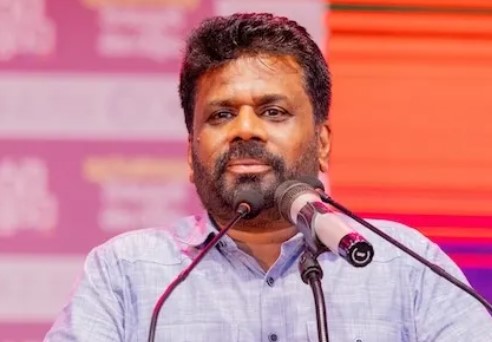Andrew Tate is back on Twitter. After first being banned from the platform in 2017, the social media personality -- who's been banned from most other platforms for misogynistic comments -- had his Twitter account restored on Friday. He's since amassed 1.5 million followers.
Tate was largely unknown until this year, when his profile exploded. Then, in August, he was banned from the full gamut of social networks -- Facebook, Instagram, YouTube, and TikTok -- dealing a painful blow to his Hustler's University online business.
But who is Andrew Tate, and what is Hustler's University?
The short story is that 35-year-old Tate is a self-help personality who revels in misogyny. Purporting to extoll wisdom to men that helps them "escape the matrix," Tate has falsely claimed that women bear some responsibility for being sexually assaulted and that they have no "innate responsibility and honor."
Before being banned, his videos racked up billions of views on TikTok and Instagram. His main business venture of late was Hustler's University, an online course for aspiring alpha males that taught lessons on crypto, stock investing and "freelancing."
"He's the whole package so far as the emerging new forms of anti-women, right-wing extremism that we're seeing," said Deakin University's Josh Roose, a political sociologist who studies extremism and masculinity. "He's mobilizing a sense not only of insecurity, but anger."
After social media platforms blocked him, a spokesperson for Tate told Bloomberg: "Banning Andrew Tate from these platforms might seem the answer, but it isn't that simple. Removing Tate's voice doesn't allow for a kinder hate-free society."
That's not how TikTok sees it.
"Misogyny is a hateful ideology that is not tolerated on TikTok," a company spokesperson said. "We've been removing violative videos and accounts for weeks, and we welcome the news that other platforms are also taking action against this individual."
Says Roose: Tate is an "example of what these [social media] regulations have been put in place to address."
Where did Andrew Tate come from?
Starting out as a kickboxer, Tate had his first dalliance with a public spotlight through the 2016 season of the UK's Big Brother reality show. It lasted six days. Tate was kicked off the show after a video appearing to show Tate beating a woman with a belt, threatening her with violence if she "texts him again." Tate told The Sun that the video was the couple "acting out role-play." He posted a smiling selfie alongside the woman in the video, and said they were still friends.
After winding down his kickboxing career, Tate began an online webcamming company in which he claimed that up to 75 women, some of them ex-girlfriends, were working for him. In an interview with the UK's Mirror earlier this year, Tate called the webcam business a "total scam" in which women faked "sob stories" to get men to part with their cash.
Tate has more recently become famous as an online personality promising to show boys and men how to "escape the matrix" -- shorthand for becoming more wealthy and successful with women. Before being booted from social media platforms, he had over 4.5 million Instagram followers, as well as 600,000 subscribers on his "Tate Speech" YouTube account. Videos carrying his hashtag on TikTok have been viewed over 14 billion times.
Much of Tate's content is unrelated to women. Apart from touting advice on how to become wealthy, he's also known for his outspoken support of Donald Trump, who he sees as an exemplary "alpha male." Tate also spoke out against COVID lockdowns and vaccine mandates, despite the voluminous evidence showing that vaccines are effective at preventing hospitalization and death from COVID-19.
What got Tate kicked off social media?
Tate's comments about women appear to be what led to him being kicked off Facebook, Instagram, YouTube, Twitter and Twitch. Though his political takes were polarizing, many of his remarks about women were unambiguously sexist.
Back in 2017, he was kicked off Twitter when, criticizing the #MeToo movement, he said that rape victims "bear some responsibility" for putting themselves in a position to be assaulted, a false claim that seeks to exonerate the perpetrators of violence against women. Speaking about married women who make money via OnlyFans, a subscription service known for sexually explicit content, Tate said they owe their partners money since they're a man's property. Explaining why he'd never let a woman drive his car, he claimed that women "have no innate responsibility or honor."
Tate has spoken out against the MeToo movement, claiming it hasn't helped women and has served only to "destroy" the safety of men. In an old YouTube video, Tate said that "40% of the reason" he moved to Romania is because of more relaxed sexual assault laws.

"Andrew Tate isn't much different from many of the other men-focused right, far-right and alt-right grifters that have come before him," said Luc Cousineau, co-director of research at the Canadian Institute for Far-Right Studies. "There is nothing about this man's discourse that is different ... these copycat talking points continue to get traction with a certain subset of populations because there is an appetite for being told that it is your 'right' as a man to have dominance and power."
Tate was banned from Twitter for evading a previous ban, a Twitter spokesperson told CNET. Meta booted him from its platforms for violating community guidelines under the "dangerous individuals and organizations" clause. A YouTube spokesperson said Tate was barred from the platform after "multiple violations" of community guidelines.
Since being removed from all those platforms, Tate has moved to Rumble, a video sharing platform similar to YouTube that prides itself on being "immune to cancel culture."
Cousineau said that big tech's banning of Tate could reduce his impact but not erase it, as sites like Rumble provide a refuge for speech deemed hateful on other platforms. "Andrew Tate and others like him are not going to be exposed to millions of new people and get billions of views in these niche spaces, and the cultural impact of their rhetoric is necessarily minimized," Cousineau said.
What is Hustler's University?
If Andrew Tate's talking points are nothing new, Cousineau said, what distinguishes Tate is that "he figured out a new way to game the current social media landscape."
That was achieved via Hustler's University, Tate's online self-help course on wealth generation. It costs £39 ($45) per month, which its site claims grants to access to 12 "multimillionare experts in their selected field." Included topics in the course are copywriting, e-commerce, crypto, stocks and freelancing.
Part of Tate's social media presence is due to Hustler's University's "affiliate marketing" campaign, according to a report from The Guardian. Hustler's University members earn 48% commission for every person they refer, the publication reports, and Hustler's University actively encourages its users to spread inflammatory Tate content on TikTok and other social media. Polarizing videos get more eyeballs, and more eyeballs means more referrals for Hustler's University "students."
"There's people who say, 'don't give him publicity and let him fade away,'" said Deakin University's Roose. "But this is impacting our young men. Research I've done, and others have done, demonstrates that where older men are typically more likely to be distrusting of minority groups, younger men at a really surprising level, a significant minority, are anti the idea of women having the same rights as men."
"That demographic is being exploited by individuals like this."
The move to block Tate from social media has been criticized by some. That notably includes social media personality-turned-pro boxer Jake Paul who, though speaking out against Tate's offensive sexism, took issue with what he described as social media censorship.
Both Cousineau and Roose argue that the banning is justified.
"I understand the argument that banning people like Tate from mainstream platforms pushes them toward more niche areas of social media and online space where radicalization goes to grow," Cousineau said. "But Andrew Tate and others like him are not going to be exposed to millions of new people and get billions of views in these niche spaces, and the cultural impact of their rhetoric is necessarily minimized."

And now he's back on Twitter?
Yep. On Nov. 19, Twitter owner Elon Musk tweeted that it was "Freedom Friday" as he reinstated deleted accounts for the likes of Jordan Peterson and Kathy Griffin. Over the weekend Musk also restored the account of Donald Trump.
"New Twitter policy is freedom of speech, but not freedom of reach," Musk tweeted. "Negative/hate tweets will be max deboosted and demonetized, so no ads or other revenue to Twitter. You won't find the tweet unless you specifically seek it out, which is no different from rest of Internet."
"I am a Top G," Tate tweeted on Sunday, "but Elon Musk is top E."
First published on Aug. 25, 2022 at 5:25 p.m. PT.
Source: www.cnet.com

















 English (United States) ·
English (United States) ·